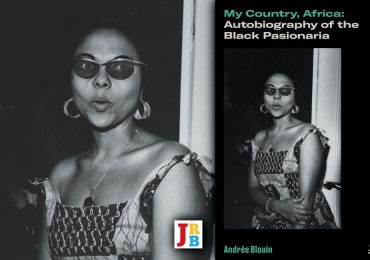The New York Review of Books has featured an article by Panashe Chigumadzi, titled ‘Soap and South Africa’s “Fatal Intimacy”‘.
In the article, Chigumadzi, who recently joined The JRB as Contributing Editor, examines the symbolism of ‘this ordinary household item’ in apartheid and post-apartheid South Africa.
During apartheid, public interactions between black and white bodies were tightly controlled, and yet, paradoxically, black people still worked intimately for white people in their homes. Citing the infamous sex scene between a young Rian Malan and a live-in black domestic worker in Malan’s memoir My Traitor’s Heart—in which he states that he associates the smell of Lifebuoy soap ‘with servants’—and Nadine Gordimer’s July’s People—in which a liberal white family start their day with a ‘tea-tray in black hands smelling of Lifebuoy soap’—Chigumadzi states: ‘The uses—and alleged non-uses—of this ordinary household item are thus entwined in the country’s history.’
In his ‘Introduction’ to Categories of Persons: Rethinking Ourselves and Others, edited by Jacob Dlamini and Megan Jones, Njabulo Ndebele suggested that encounters such as these yielded a ‘fatal intimacy’ between black and white South Africans.
To Chigumadzi, this ‘fatal intimacy’ is ‘strange and contradictory’: ‘If black people are so repulsive that you require this apartheid, why have them in your homes? If black people are so dirty, why have them cook your food, wash your clothes, raise your children?’
The recent controversy surrounding a Dove soap advert in which a black woman takes off a brown T-shirt and appears to turn into a white woman wearing a lighter T-shirt, which caused a storm internationally and a huge storm in South Africa, mystified some, mainly white, South Africans. Recalling one such person, who phoned into a Johannesburg talk radio station to ask what all the fuss was about, Chigumadzi says she ‘thought it curious that this caller would exhibit such amnesia about the not-distant history of his country’s racism involving soap and the perceived uncleanliness of black bodies’.
Many older South Africans would still remember the notorious “swimming pool” episode that made national news in 1990, during the period when the last president of the apartheid era, FW de Klerk, was introducing gradual reforms. In the week after the repeal of the Separate Amenities Act, The Weekly Mail sent Philip Molefe, a black reporter, to the northeast town of Ermelo along with a white colleague. Of all the resistance to Molefe’s use of previously segregated public facilities, the fiercest confrontation took place at the public swimming pool. Ermelo’s enraged white swimmers tried unsuccessfully to prevent him from getting into the water. “While Molefe splashed around,” The Weekly Mail reported, the white lifeguard “screamed angrily, ‘Swim. De Klerk said you can swim … I’ll give you some soap to wash with.’” Later, at another stop, an Afrikaner man muttered, “This place is going to be dirty now.”
- Panashe Chigumadzi, the founding editor of Vanguard Magazine in South Africa and The JRB Contributing Editor, is the author of a novel, Sweet Medicine (2015), and a forthcoming collection of essays, Beautiful Hair for a Landless People. She is currently in residence at the Iowa International Writer’s Program.





